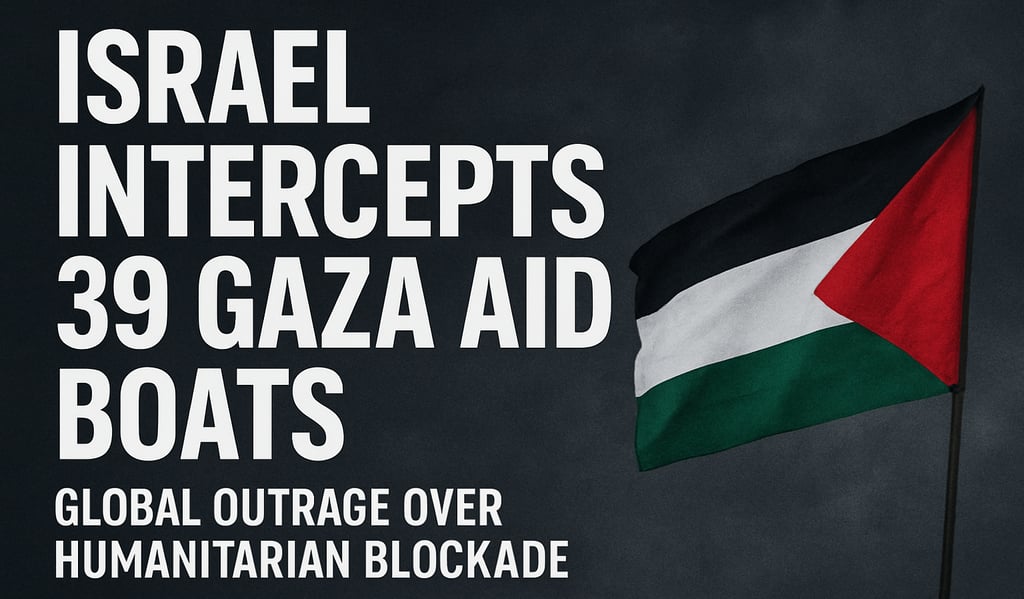Israel Intercepts 39 Gaza Aid Boats | Global Outrage and Humanitarian Crisis
Israel intercepts 39 Gaza aid boats on Oct 2, 2025, sparking protests, diplomatic fallout, and urgent calls for humanitarian relief in Gaza.
Raja Awais Ali
10/2/20252 min read


Israel Intercepts 39 Gaza Aid Boats: Global Outrage Over Humanitarian Blockade
On the night between October 1 and 2, 2025, Israeli naval forces intercepted an international humanitarian flotilla called the Global Sumud Flotilla, which was headed toward the blockaded Gaza Strip. According to flotilla organizers, nearly 39 vessels were stopped and seized by the Israeli navy about 70 nautical miles from the coast, preventing the delivery of food, medicine, and other critical supplies to Palestinians in Gaza.
The flotilla carried close to 500 people from more than 15 countries, including lawmakers, human rights advocates, and well-known global figures. Swedish climate activist Greta Thunberg was also part of the flotilla. Eyewitnesses reported that Israeli forces boarded several ships, detained passengers, and diverted the vessels to an Israeli port.
Israel justified the interception, saying the flotilla had attempted to break a “legal maritime blockade” in the middle of an active conflict zone. The Foreign Ministry claimed that organizers had been repeatedly warned to redirect the shipment and send humanitarian aid through official channels.
In contrast, flotilla organizers and international observers condemned the action, describing it as a violation of international law and maritime rights. The Palestinian Foreign Ministry called it an “illegal act,” insisting that Israel holds no legal authority over Gaza’s coastal waters.
The international reaction was swift. Colombia announced it would expel Israeli diplomats, while Turkey began legal proceedings in response to the incident. Major protests broke out in Italy, Turkey, Greece, and Ireland, where demonstrators demanded an immediate end to the blockade. The United Kingdom urged Israel to safeguard the rights of detained activists and ensure that humanitarian supplies reached Gaza without obstruction.
This episode underscores the worsening humanitarian crisis in Gaza. Since the conflict intensified in 2023, Israel has imposed strict military and economic restrictions, leaving civilians struggling for food, medicine, electricity, and clean water. Flotilla organizers stressed that their mission was not only to deliver aid but also to challenge the blockade both symbolically and practically.
The interception also evokes memories of the 2010 Mavi Marmara flotilla raid, when Israeli forces attacked Turkish aid ships, leaving several activists dead and many others injured. That incident sparked global criticism, and today’s blockade challenge in 2025 is once again raising pressing questions: Can a state legally prevent humanitarian aid shipments by citing security concerns in wartime?
In summary, the October 2, 2025 interception of 39 aid vessels by Israel has triggered widespread condemnation, mass protests, and diplomatic fallout. Gaza’s ongoing humanitarian crisis has once again highlighted urgent debates over human rights, international law, and the moral obligations of the global community. The incident reinforces the principle that humanitarian relief for civilians should never be subjected to political or military restrictions.
Stay informed with the latest national and international news.
© 2025. All rights reserved.